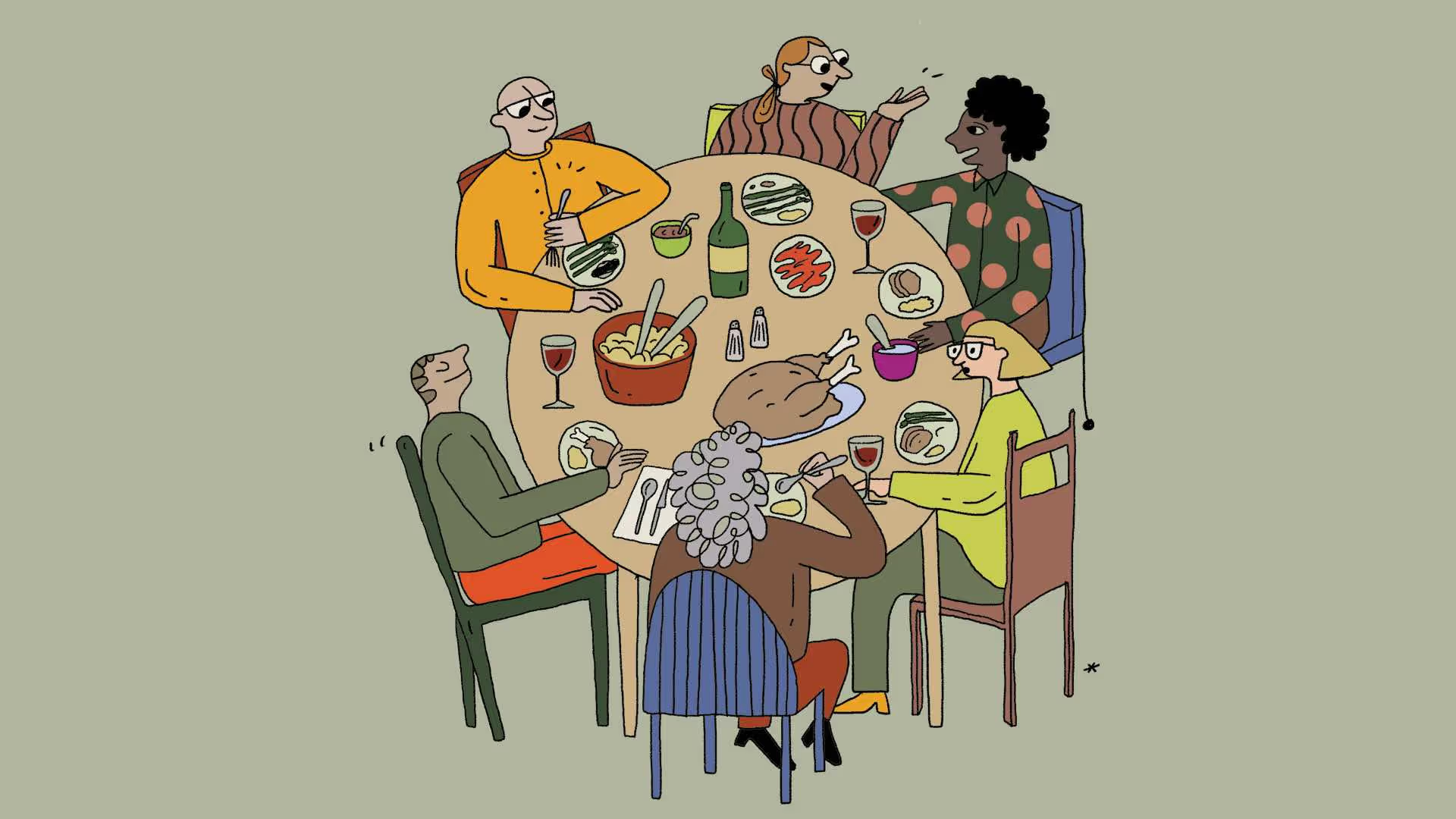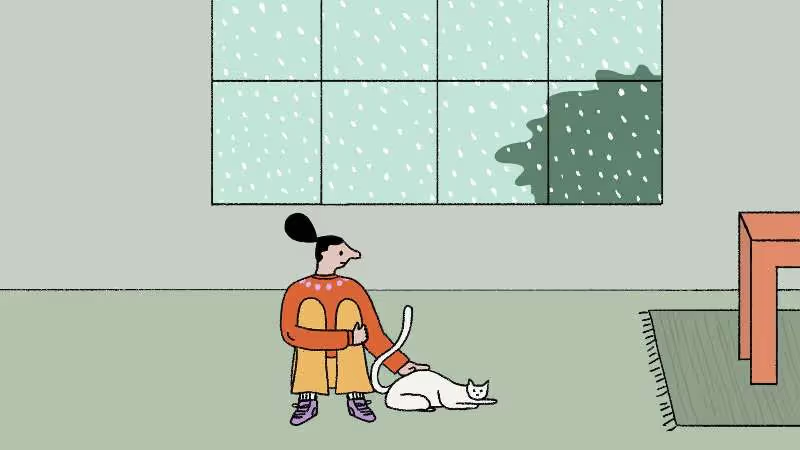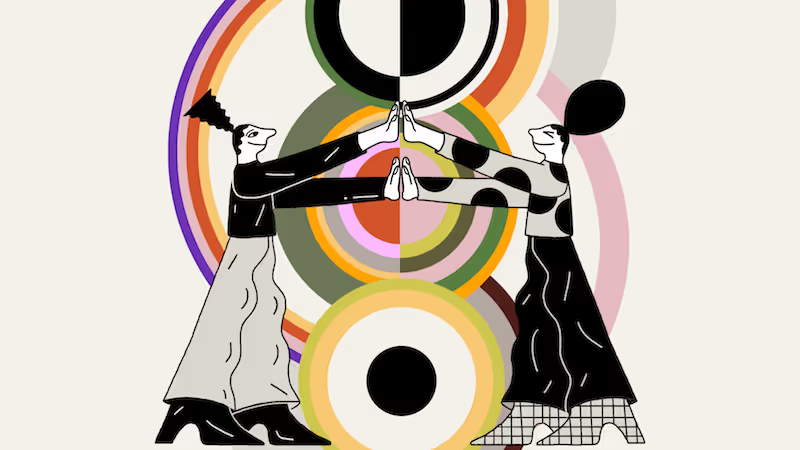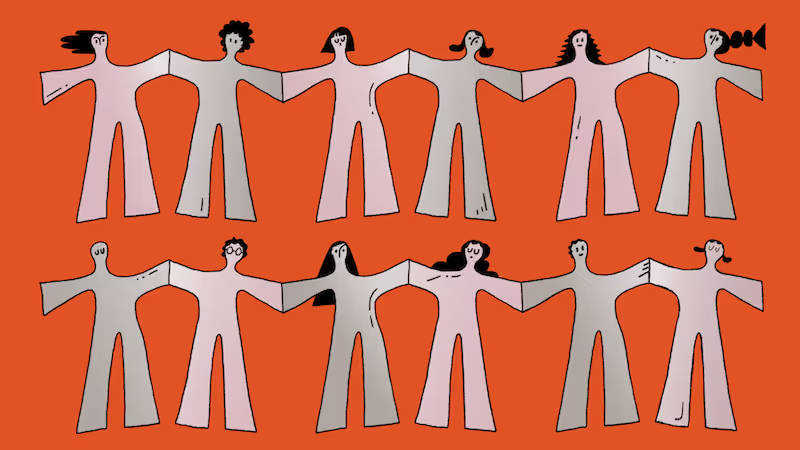Shall We Begin?
Who matters in your life today and how has it changed? Every year, as the leaves pile up on the ground here in New York, these questions begin to peak for me. To whom do I want to reach out for a holiday check in? Whom do I want to dance with on New Year’s Eve? Where do I want to focus my relational energy? As lives change, so do the answers, but what stays the same for me is what I seek in all my relationships: belonging, connection, honesty, loyalty, support, adventure, (and sometimes commiseration).
Belonging has long been at the heart of my work. Belonging is that sense of safety, comfort, and happiness that we feel when we are part of a group, place, tradition, relationship, or friendship. Our identities are intertwined with our experiences of belonging. Have you noticed how different parts of yourself become activated with different people and places? At home, I’m a mother and a partner. At work, I’m a therapist. In New York, I’m an immigrant. In my native Belgium, I’m an expat coming home for a visit. I speak nine languages and in every one a different part of me is expressed. Whenever my American and Belgian friends meet, they often compare notes. Long lasting friendships bring the many parts of us into alignment, grounding us in continuity. Old friends remind each other of who we were then and how much we’ve grown. We’ve been there for each other in excitement and boredom, in celebration and tragedy.
Decades ago now, after living in America for seven years, it seemed as if all my friends were leaving. I socialized then mostly with other foreigners and many were going back—to Amsterdam, Paris, Tel Aviv, to where they were from or to the next place they would call home. I suddenly felt like I was the only one who didn’t know where they belonged. When a friend of mine generously lent me his house for Thanksgiving, I wasn’t sure whom to invite. So I thought of the people whom I wanted to get to know better. Along with a few close friends, ten new ones came. None had ever met but they were all game to spend five days together. Thirty years later, that same group still meets every year for Thanksgiving.
We’ve seen partners come and go. There are now fourteen children amongst us, many of whom join each year. I didn’t know what “chosen family” meant before this group. Having my own has created a whole new definition of what “family” can mean. Recently, I asked one of my friends in the group to reflect on this. She focused less on the Thanksgivings we’ve shared and more on how the group has been there for each other when our families of origin could not. She lost her mother during the social-distancing era of the pandemic. Members of the Thanksgiving group gathered outside her apartment, apart but together, for a small service. When she could finally travel to clean out her mother’s home in Florida, two members of the group came with her.
We all weren’t always this close. Thirty years of Thanksgivings together made us fixtures in each others’ lives. In our secular and transient modern world, the holidays have become for many the only time in which gathering is ritualized. So make it a ritual. Come together with intention. Come prepared to participate—to prep, to cook, to clean together. You never know how these relationships might evolve. It’s never too late to start your own Thanksgiving group. Any combination of family, friends, and strangers will do, as long as you remember why you’re doing it. Co-creating a sense of belonging is one of the most satisfying aspects of having relationships at all.
Let’s Turn the Lens on You
- Think about the people in your life.
- Whom would you like to have at your Thanksgiving table? Why?
- What would it mean for you to open your home to them? Or to ask one of them to host a group in their home?
- Find a collaborator to share the organizational load.
- Both of you can invite 5 people who’d be fun to bring together. They can know each other or not.
- Invite everyone to bring one dish that is traditional for them.
- Invite everyone to join early to prep. Make sure they know everyone will be cleaning up together too.
- Consider having a few prompts for dinner conversation, perhaps about the year behind and the new year ahead.
More From Esther
“Coping With Loneliness Around The Holidays” / a blog article
There are many resources for turning holiday loneliness into strong relational health. When we’re experiencing loneliness, it can be difficult to reach out for help. With that in mind, we reached out to our community to pull together resources for coping with holiday loneliness.
“Friendship” / a newsletter
Different from romantic or filial love, friendship is its own unique love story. Making friends is the first free choice relationship we have as kids. While some friendships are tight knots, others are loose threads. How do we know which is which?
“Relationship Stress at a High? Try Spending Time With Friends” / a blog article
We spend our young lives building an entire relational infrastructure. As soon as we partner up, that network tends to shrink, often putting pressure on our romantic relationship to fill all of the relational roles in our life. Spending time with friends can help restore the balance.
Conversation Starters
A compendium of highly recommended sources of inspiration and information
I’m Reading & Watching:
- The Art of Gathering: How We Meet and Why It Matters by Priya Parker
- Belong: Find Your People, Create Community, and Live a More Connected Life by Radha Agrawal
- “Don't ask where I'm from, ask where I'm a local,” a TED Talk by Taiye Selasi
- “TOPDOG/UNDERDOG,” a play by Suzan-Lori Parks
- “Fleishman Is in Trouble,” a show based on the novel by Taffy Brodesser-Akner







.svg)





